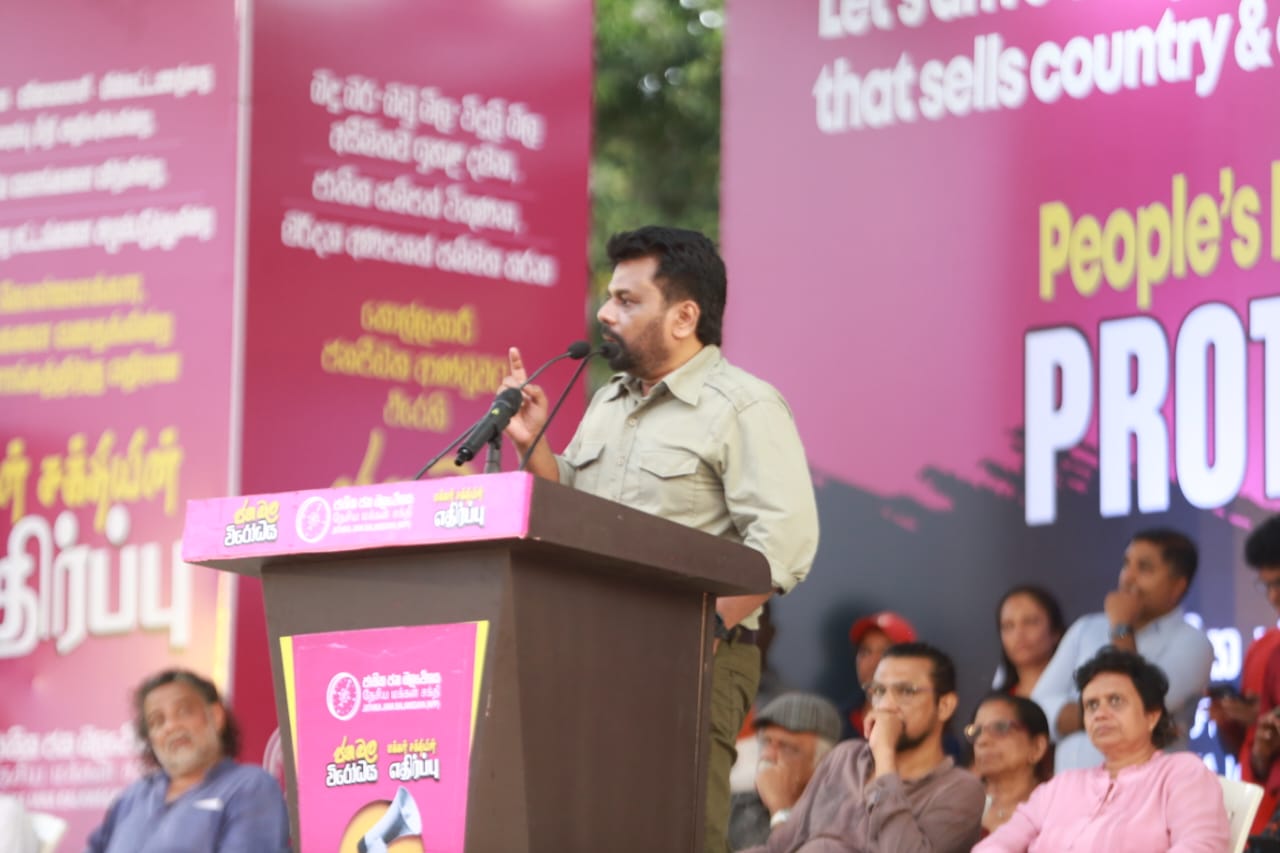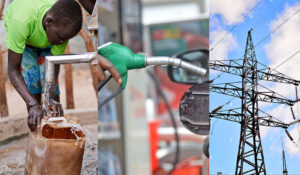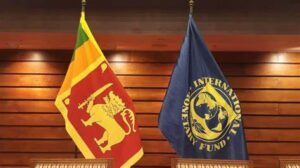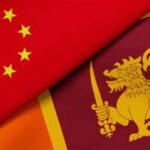
Wide Angle focus on Sri Lanka at the Crossroads: local Council Clashes
- CNL Reporter
- May 19, 2025
- Weekly Political Review
- NPP Govt
- 0 Comments
Weekly Political Review Feature | May 2025
NPP Govt reels under rising costs, broken promises, and public anger.
By Rohana Jith
More than six months into the term of President Anura Kumara Dissanayake’s National People’s Power (NPP) government, Sri Lanka finds itself grappling with a growing socio-economic crisis. Despite electoral promises of reform and relief, the government faces sharp public backlash over rising costs, policy contradictions, and administrative gridlocks at the local level.
A Nation Hungry and Uncertain
Economic instability remains the defining feature of everyday life in Sri Lanka. A surge in food prices—particularly essentials like salt, coconut oil, rice, and vegetables—has pushed the cost of living to unsustainable levels.
The proposed 18.3% electricity tariff hike, juxtaposed with an earlier 20% reduction, has sparked widespread public anger, casting doubt on the government’s credibility and its commitment to easing household burdens.
Recent studies paint a grim picture of household food insecurity, with many families resorting to survival tactics like skipping meals or consuming less nutritious alternatives. Malnutrition among children under five remains high, with nearly one-third classified as undernourished—a reality that could severely hinder the country’s economic recovery efforts.
Fuel, electricity, and medicine shortages continue to affect the most vulnerable—women, children, the elderly, and disabled citizens—adding to the desperation of daily life.

Political Trust Erodes
Despite a public mandate for change, the NPP government’s actions have raised concerns over transparency and consistency. Allegations swirl regarding the undue influence of powerful business figures acting as unofficial advisors. Simultaneously, lingering suspicions and unresolved accusations against former presidents undermine efforts to restore public confidence in governance.
Civil liberties appear increasingly under strain, and the public’s waning trust is evident in the discourse surrounding local council elections. While the NPP claims to have secured victory in 267 out of 339 local bodies, many councils remain deadlocked, lacking outright majorities.
This has opened the door to opposition maneuvering, especially in high-stakes councils like the Colombo Municipal Council (CMC), where the NPP holds 48 of the 117 seats—11 short of a majority.
Deadlock at the Local Level
With all local councils scheduled to convene on June 2, political jockeying intensifies. Where no party commands a clear majority, the selection of chairpersons and deputies could significantly influence governance and budgetary decisions. If consensus fails, votes will be required—potentially leading to fragile coalitions and administrative stalemates.

The implications are far-reaching. Without control over budget allocations for capital expenditure, many councils may be limited to covering recurrent costs—salaries, utilities, and routine services. Such a focus sidelines development projects, delaying infrastructure improvements and community programs, and further marginalizing already disadvantaged regions.
As local government authorities like Pradeshiya Sabhas and Municipal Councils struggle to appoint leadership, the risk of prolonged inefficiency looms large, threatening the delivery of essential public services.
A Trail of Broken Promises?
President Dissanayake and his party swept to power on a wave of anti-corruption rhetoric and promises of sweeping reform. Vows to eradicate bribery, eliminate political commissions, and renegotiate the IMF’s Extended Fund Facility (EFF) were central to the campaign. Yet in office, the government has backtracked on key promises:
Electricity tariffs were to be cut by over 30%, but the government settled for a 20% reduction—only to propose an 18.3% hike shortly thereafter.
Fuel pricing remains tied to the same formula introduced by the previous regime, despite earlier pledges to overhaul it.
VAT exemptions for medicines, school items, and food have not materialized, except for limited items like fresh milk and yoghurt. A Rs. 6,000 allowance for low-income families to purchase stationery has been the only tangible relief.
Public sector salary increases were announced and implemented with Rs. 110 billion allocated in the March budget. However, no further mention has been made of the promised biannual salary revisions tied to the cost of living.
These inconsistencies have led to accusations of populism, with critics arguing that the NPP is failing to translate its reformist rhetoric into real, measurable progress.
Resurgence of Gun Violence and Shadows of the Past

Adding to the public’s sense of insecurity is a disturbing surge in violent killings carried out by unidentified gunmen. In just the past two months, over 40 reported assassinations—many believed to be linked to underworld rivalries—have rocked various parts of the country, including Colombo, Gampaha, and Southern regions.
The brazenness of these killings, some carried out in broad daylight, has revived chilling memories of the subversive era during 1987–1989 when the Janatha Vimukthi Peramuna (JVP) engaged in vigilante-style violence, often taking the law into their own hands.
While the government has condemned the killings and promised swift justice, the rising tide of lawlessness raises questions about the effectiveness of current law enforcement and the government’s capacity to ensure basic public safety.
The sense of déjà vu from the dark years of political violence further deepens anxiety within a population already battling economic and social instability
Stability or Stagnation?
The NPP’s continuation of the IMF-backed economic reform program—despite earlier criticism—signals a pragmatic shift in approach. Government leaders argue that renegotiation could derail Sri Lanka’s tentative recovery. Yet, this about-face has raised questions about the administration’s political will and ability to protect the interests of the poor while adhering to global financial conditions.

Six months into its five-year term, the government is at a critical juncture. The time elapsed is enough to reveal its policy direction, if not its full track record. For many Sri Lankans, the verdict is still out—but hope is beginning to fray at the edges.
The Road Ahead
As the dust settles from the local council elections and political alliances form or fracture, the real test of the NPP government’s stability and effectiveness will unfold at both national and grassroots levels. The choice between capital investment and mere survival spending will shape the future of local communities.
For now, the disconnect between promise and practice is widening. Unless urgent action is taken to address food insecurity, restore public trust, enforce rule of law, and commit to transparent governance, the NPP risks becoming another chapter in the long history of political disappointment in Sri Lanka.

